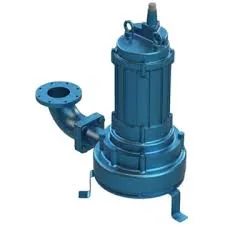English
- Afrikaans
- Albanian
- Amharic
- Arabic
- Armenian
- Azerbaijani
- Basque
- Belarusian
- Bengali
- Bosnian
- Bulgarian
- Catalan
- Cebuano
- Corsican
- Croatian
- Czech
- Danish
- Dutch
- English
- Esperanto
- Estonian
- Finnish
- French
- Frisian
- Galician
- Georgian
- German
- Greek
- Gujarati
- Haitian Creole
- hausa
- hawaiian
- Hebrew
- Hindi
- Miao
- Hungarian
- Icelandic
- igbo
- Indonesian
- irish
- Italian
- Japanese
- Javanese
- Kannada
- kazakh
- Khmer
- Rwandese
- Korean
- Kurdish
- Kyrgyz
- Lao
- Latin
- Latvian
- Lithuanian
- Luxembourgish
- Macedonian
- Malgashi
- Malay
- Malayalam
- Maltese
- Maori
- Marathi
- Mongolian
- Myanmar
- Nepali
- Norwegian
- Norwegian
- Occitan
- Pashto
- Persian
- Polish
- Portuguese
- Punjabi
- Romanian
- Russian
- Samoan
- Scottish Gaelic
- Serbian
- Sesotho
- Shona
- Sindhi
- Sinhala
- Slovak
- Slovenian
- Somali
- Spanish
- Sundanese
- Swahili
- Swedish
- Tagalog
- Tajik
- Tamil
- Tatar
- Telugu
- Thai
- Turkish
- Turkmen
- Ukrainian
- Urdu
- Uighur
- Uzbek
- Vietnamese
- Welsh
- Bantu
- Yiddish
- Yoruba
- Zulu
Telephone: +86 13120555503
Email: frank@cypump.com
Sep . 19, 2024 02:29 Back to list
slurry pump expeller
Understanding the Role of Expellers in Slurry Pumps
In various industrial applications, especially in mining, mineral processing, and wastewater treatment, the conveyance of slurries—mixtures of solids and liquids—is an essential operation. Slurry pumps are specifically designed for this purpose, and one critical component that significantly influences their performance is the expeller. This article delves into the function and importance of expellers in slurry pumps, highlighting their contribution to efficiency and longevity.
Understanding the Role of Expellers in Slurry Pumps
One eminent advantage of employing expellers in slurry pumps is their ability to reduce the likelihood of the solid particles settling. In a slurry dominated by heavy solids, there is a risk that the solids can settle at the bottom of the pump, leading to blockages and inefficient pumping. The expeller minimizes this risk by ensuring that even the heavier particles remain suspended in the liquid, allowing for a consistent and uninterrupted flow. This feature is particularly crucial in applications involving thick slurries where maintaining a steady pumping action is vital for operational efficiency.
slurry pump expeller

Additionally, expellers play a significant role in managing the hydraulic pressure within the pump. By optimizing the flow dynamics, they help mitigate the wear caused by abrasive particles in the slurry. Abrasion is one of the leading causes of pump failure, and by preventing the solids from impacting the pump internals directly, expellers contribute to extending the pump's lifespan. This durability not only reduces maintenance costs but also minimizes downtime, which is essential for industries where operational efficiency is paramount.
The design of expellers can vary based on the specific requirements of the application and the type of slurry being handled. Factors such as the size of the particles, the concentration of solids, and the viscosity of the liquid all influence the design choices made by engineers and manufacturers. For instance, larger and more robust expellers may be necessary for thick slurries with heavy particles, whereas smaller, more intricate designs might be sufficient for lighter, more fluid mixtures.
In conclusion, expellers are integral components of slurry pumps that significantly enhance their functional efficiency. By ensuring that slurry remains in motion, reducing the risk of sedimentation, and managing hydraulic pressures, expellers contribute to the durability and reliability of slurry pumping systems. As industries continue to evolve and demand more efficient and cost-effective pumping solutions, the role of expellers will only become more prominent, driving innovation and improvements in pump technology. Understanding their importance can help operators make better decisions regarding equipment design and maintenance, ultimately leading to improved performance in slurry-handling operations.
-
Horizontal Split Case Pump with GPT-4 Turbo | High Efficiency
NewsAug.01,2025
-
ISG Series Pipeline Pump - Chi Yuan Pumps | High Efficiency, Durable Design
NewsAug.01,2025
-
Advanced Flue Gas Desulfurization Pump with GPT-4 Turbo | Durable & Efficient
NewsJul.31,2025
-
ISG Series Vertical Pipeline Pump - Chi Yuan Pumps | Advanced Hydraulic Design&Durable Construction
NewsJul.31,2025
-
ISG Series Vertical Pipeline Pump - Chi Yuan Pumps | Energy Efficient & Low Noise
NewsJul.31,2025
-
pipeline pump - Chi Yuan Pumps Co., LTD.|High Efficiency&Low Noise
NewsJul.31,2025










